Ferrari on Thursday revealed details about its first battery-powered model, the Elettrica. But the Italian automaker is delaying a second EV. And it’s not alone. Ford has scrapped several all-electric models, while Nissan pulled the plug on the 2026 Ariya. Acura just ended production of the ZDX and Stellantis has abandoned the all-electric Ram REV. Those are among a growing list of planned EVs that no longer will make it into production — or will be substantially delayed. Here are some of the others.
It’s anyone’s guess how much of a hit the U.S. EV market will take now that the $7,500 federal tax credits have ended. Even the optimists expect to see a sharp slowdown in the months ahead, and a study by AutoPacific forecasts market share will only reach around 12% by decade’s end, barely half what the consulting firm had anticipated before the Trump administration took office.
Not surprisingly, automakers are scrambling to revise their electrification plans. And, while we’re likely to see more hybrids than previously planned, the EV count is clearly taking a hit. In recent weeks, manufacturers including Acura, Nissan and Stellantis have cut out some models, with more likely to face the axe going forward.
Here’s a list of the EV programs we know or expect to be cut by specific manufacturers:
Acura
Honda’s upscale brand only recently got into the EV market with a more lavishly equipped version of the plebian Prologue. (Both are the result of a joint venture with General Motors.) The Acura ZDX failed to click with consumers and ended production last month. But it won’t be out of the EV market long. The new RSX will debut next year, sharing underpinnings with the Honda 0-Series line developed in-house.
Aston Martin
The long-struggling British automaker earlier outlined one of the more aggressive electrification plans in its segment of the market – but has since moved to roll things back. Its first EV originally was scheduled to appear in 2025 or 2026 and likely now won’t make it to market until at least 2027, it indicated. But a partnership with U.S.-based Lucid indicates it’s still got EVs in the works. More immediately, look for both ICE and PHEV options.
Bentley
Bently has pushed back its plans to become an all-EV manufacturer from 2030 to 2035, at the earliest. CEO Frank-Steffen Wallise announced the shift in September, blaming slowing EV sales. The British marque will continue delivering a mix of ICE and PHEV products until at least then.
 Ferrari
Ferrari
The Italian automaker’s first EV, the Elettrica, is set to arrive about a year from now. But it is delaying the launch of a second electric sportscar until later in the decade.

The new project gets a new logo retaining Ford’s classic blue color but swapping out the familiar oval shape.
Ford
There’s both good and bad news for EV fans when it comes to the Blue Oval – which has scaled back or delayed a number of EV plans, including upscale 3-row SUVs for the Ford and Lincoln brands. It’s delaying the opening of its Blue Oval City complex, along with replacements for the F-150 Lightning and E-Transit van. But it now is focused on low-cost models based on the new Universal EV project announced in August.
General Motors
CEO Mary Barra continues to repeat her mantra: “GM is on a path to an all-electric future.” It’s just likely to be a longer path than originally expected. Some delays are reportedly under study and GM some time ago said it would add hybrid versions of some of its larger products where range and towing concerns threatened to minimize consumer demand.
Hyundai Motor Group
A raid by ICE has set back the Korean group’s launch of battery production at a new plant in Georgia, though the three brands, Hyundai, Genesis and Kia, continue to promise an “avalanche” of new EV models, including the upcoming Kia EV4. But officials have also indicated they’ll be slower to move away from ICE models and, in the meantime, will put more emphasis on hybrids of various forms.
Jaguar Land Rover
JLR’s aggressive EV plans are being tamed. The Jaguar side of the company is still set to go 100% electric, though some sources suggest the pace of the rollout is being slowed, in part, due to cash flow problems – worsened by a cyberattack that shut its factories down for six weeks. The Land Rover arm postponed the debut of its first EV in July, according to the Guardian.
Lamborghini
The Italian automaker joins exotic competitors Ferrari and Aston Martin in rethinking its push into EVs. Lamborghini will delay the Lanzador, originally scheduled to launch in 2028 by at least a year. It meanwhile is floating the idea that the electric sports car could emerge as a plug-in hybrid, rather than a full EV – though it’s also possible both options will be offered.
Nissan
It was the first mass market manufacturer to deliver a mainstream EV – and there’s an all-new version of the Leaf for 2026. But Nissan last month said it was unplugging the bigger Ariya for the 2026 model year. It has now confirmed it is also scrapping plans to produce EVs – for both the Nissan and Infiniti brands – at its Canton, Mississippi assembly plant. Instead, it will go with a revived Xterra SUV with a hybrid drivetrain.
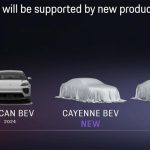 Porsche
Porsche
Porsche is realigning its electrification strategy. In simpler terms, it will slow down plans to go all-electric, putting more emphasis on hybrids and plug-in hybrids for at least the next decade. A new EV platform will be pushed back. “Nevertheless, the existing all-electric model range is being continuously updated,” Porsche’s statement said. “With the Taycan, Macan, Cayenne and the future two-door sports car in the 718 segment, there will be an attractive BEV offering.”
Stellantis
The Euro-American automaker is backing away from some EVs, including the Ram REV, an all-electric version of the Ram 1500 pickup is the most immediate casualty, though the electric Dodge Charger Daytona’s ultimate edition, the Banshee, is also dead. The Jeep Recon may now get a gas option, like Charger, or even a hybrid package. Stellantis is moving ahead on hybrids, plug-ins and range-extenders, though it has also dropped the Jeep Gladiator 4xe. Among European brands, its canceled the battery version of the Maserati MC20, and more changes at Maserati and Alfa Romeo are expected.
Toyota
The Japanese giant has long been a proponent of a “multi-pathway” powertrain strategy, and skeptical of EVs, in particular. It’s got three in Toyota brand stores for 2026, including the new C-HR and bZ Woodland, with more coming, including a three-row version of the Highlander. But those appear to have slipped back by at last a year, to no earlier than 2027. Lexus has also delayed two EVs based on the LF-ZC and LF-ZL concepts.
Volkswagen
Struggling to build momentum for its original ID4, Volkswagen previously canceled plans to bring the ID7 to the U.S. – among other models once expected to find room in American showrooms. There are delays of other global models, including the all-electric ID.Golf, and the next-generation EV platform, dubbed Trinity, likely won’t be completed before 2032. But VW has invested $5.8 billion in U.S.-based Rivian to gain access to its centralized and lower-cost electrical architecture which should first reach the U.S. in the electric Golf.
Volvo
Look for delays in some future EV launches, in part due to the hefty tariffs the Trump administration has placed on Chinese imports. That forced Volvo to shift production of U.S.-bound EX30 models from Zhangjiakou, China to Ghent, Belgium. And it’s pulled the plug on a U.S. version of the ES90, set to be its flagship sedan. Software problems, meanwhile, catch blame for delays with the EX90 crossover.

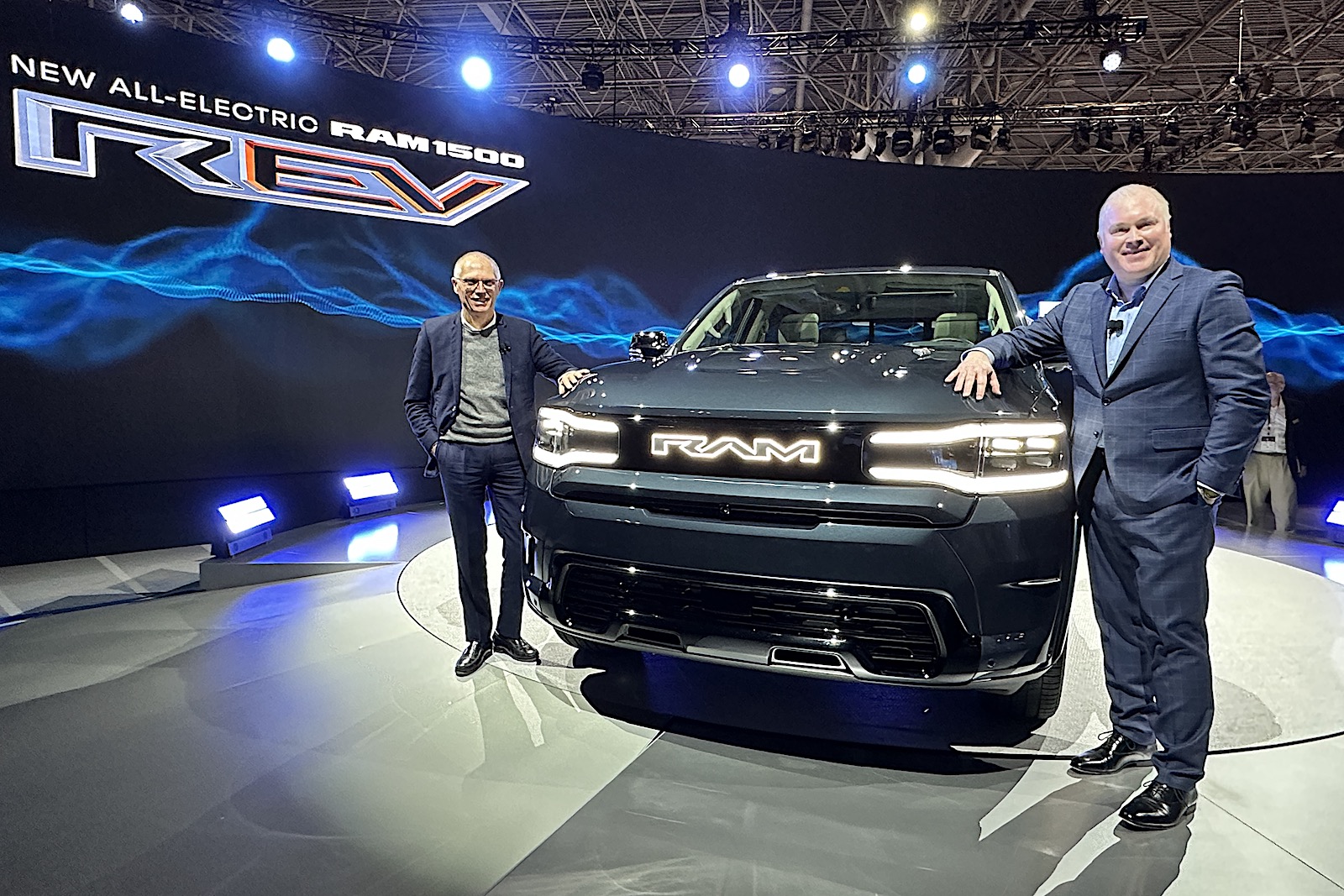
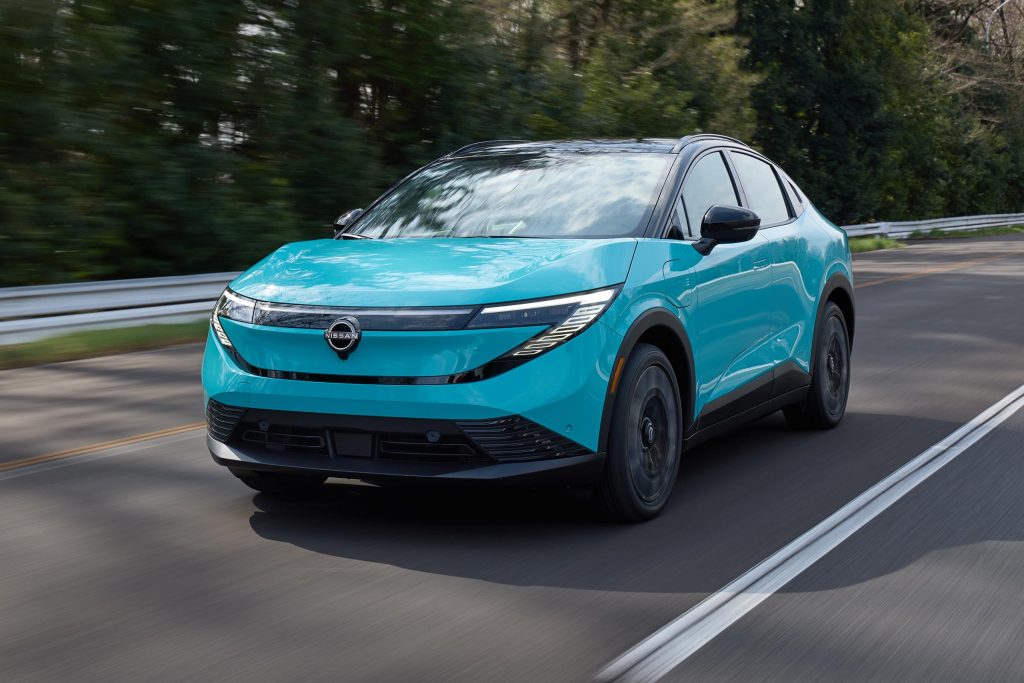
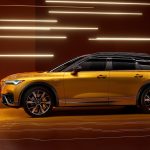
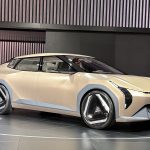
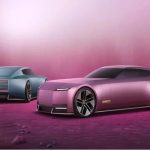

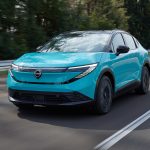
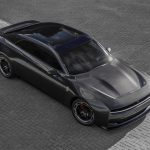
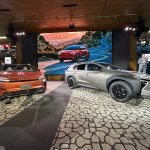
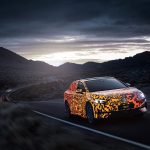
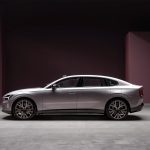
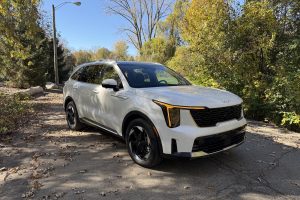

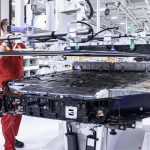
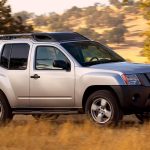
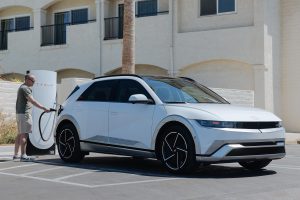
Ten years from now people may well ask, “What is an EV?”
LMFAO…not a chance. Quite the opposite. You need to stop politicizing. There’s a reason every study finds EV loyalty rates are substantially higher than ICE. And Power and others in the U.S. find that interest in buying EVs goes up with experience with the vehicles. Sales growth in EU may be slowing but it’s still solid. Same in China and Japan and even places like Mexico.
Range is becoming less an issue. Charger availability still a concern. Pricing, too, but the number of affordable models is rapidly rising.
Sorry, Jim, you’re simply wrong.
Paul E.